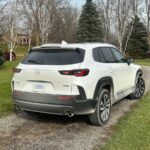The Toyota Highlander Hybrid has become a popular choice for families seeking a fuel-efficient and spacious SUV. However, when considering this vehicle, understanding the complete cost implications is crucial. The initial price tag is just the starting point, and various factors contribute to the overall expense of owning a Highlander Hybrid.
The Manufacturer’s Suggested Retail Price (MSRP) provides a base cost, but the final price can vary based on trim levels, selected options, and dealership markups. Furthermore, advertised prices may already include manufacturer incentives that can expire, so it’s essential to confirm these details with the dealer. College graduate and military rebates, if applicable, are typically not included in initial price quotes and should be considered separately.
Beyond the vehicle price itself, buyers should factor in additional costs such as sales tax, registration fees, and government fees. Dealer documentation preparation charges are also common. It’s important to get a detailed breakdown of all these fees from the dealership to avoid any surprises.
Fuel efficiency is a major draw for hybrid vehicles. While the Toyota Highlander Hybrid boasts impressive MPG ratings, actual mileage can fluctuate depending on driving habits, vehicle maintenance, and driving conditions. Battery condition in hybrid models also plays a role in fuel economy over time. Therefore, while you can expect fuel savings compared to a traditional SUV, your real-world fuel costs will vary.
Finally, always verify the accuracy of pricing and vehicle feature information with the dealership directly. Manufacturer data and features are often provided by third parties and may have slight discrepancies. Confirming details ensures you have the most up-to-date and accurate information when making your purchasing decision for a Toyota Highlander Hybrid.
